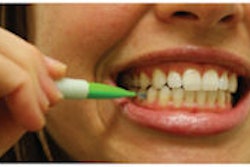As the field of dental implantology continues to have a significant effect on dental treatment planning, the American Academy of Periodontology (AAP) recently reaffirmed its position that, whenever reasonable, efforts should be made to save a patient's natural dentition.
The AAP also stressed that an evidence-based approach must always be taken when considering an individual's treatment options, especially regarding surgical procedures such as tooth extraction and dental implant placement.
"There has been some discussion that more and more dentists, GPs [general practitioners], and specialists alike, are favoring extraction and implant surgery rather than saving the natural dentition," said Samuel Low, D.D.S., M.S., associate dean and professor of periodontology at the University of Florida College of Dentistry and president of the AAP, in a press release. "The reason often given is that the patient believes implant surgery is quicker and requires less effort than undergoing periodontal therapy and following a long-term oral health regimen. While it is important to consider the patient's preferences, it is the AAP's long-standing belief that evidence-based treatment planning produces better patient outcomes."
Some patients and dentists may have the misperception that traditional periodontal treatment is not effective, Dr. Low added. "The fact that traditional periodontal treatment, including both nonsurgical and surgical techniques, has very high success rates has been shown in longitudinal studies," he said (Journal of Periodontology, May 1978, Vol. 49:5, pp. 225-237; Periodontal Abstracts, March 1969, Vol. 17:1, pp. 8-9; Journal of Periodontology, June 1986, Vol. 57:6, pp. 347-353). "It has also been shown that periodontal surgery, when not followed by good professional and personal care, will in many cases fail" (Journal of Clinical Periodontology, September 1984, Vol. 11:8, pp. 504-514; Journal of Clinical Periodontology, March 1982, Vol. 9:2, pp. 115-128).
In addition, the AAP maintains that implant surgery is not a "no-maintenance" alternative to natural dentition, because even implants require proper oral hygiene to prevent bone loss (peri-implantitis), which recent research has shown to be more prevalent than many dentists and patients realize (Journal of Clinical Periodontology, September 2008, Vol. 35:8, pp. 282-285).
While implants do provide a useful option for patients whose natural dentition is unable to be maintained, sustained progress in periodontics has made preservation more attainable, Dr. Low noted. For example, recent scientific advances in regeneration have made restoring lost periodontal tissues more predictable then ever. "It is critical that all dental professionals ensure that patients are aware of all possible treatment options, and that an evidence-based approach is used to determine what the best possible course of treatment should be," he said.
The entire dental team -- the general dentist, periodontist, and hygienist -- must first work together in educating patients on proper oral hygiene to prevent periodontal disease and preserve the natural dentition, Dr. Low added. "In addition, the dental team must provide a united front in ensuring that when periodontal treatment is needed, the patient understands the options and ultimately accepts the recommended course of treatment, maintenance, and at-home regimen."
Copyright © 2010 DrBicuspid.com



















